Basically, I have to show each word with their count but repeated words show up again in my program.
How do I remove them by using loops or should I use 2d arrays to store both the word and count?
#include <iostream>
#include <stdio.h>
#include <iomanip>
#include <cstring>
#include <conio.h>
#include <time.h>
using namespace std;
char* getstring();
void xyz(char*);
void tokenizing(char*);
int main()
{
char* pa = getstring();
xyz(pa);
tokenizing(pa);
_getch();
}
char* getstring()
{
static char pa[100];
cout << "Enter a paragraph: " << endl;
cin.getline(pa, 1000, '#');
return pa;
}
void xyz(char* pa)
{
cout << pa << endl;
}
void tokenizing(char* pa)
{
char sepa[] = " ,.\n\t";
char* token;
char* nexttoken;
int size = strlen(pa);
token = strtok_s(pa, sepa, &nexttoken);
while (token != NULL) {
int wordcount = 0;
if (token != NULL) {
int sizex = strlen(token);
//char** fin;
int j;
for (int i = 0; i <= size; i++) {
for (j = 0; j < sizex; j++) {
if (pa[i + j] != token[j]) {
break;
}
}
if (j == sizex) {
wordcount++;
}
}
//for (int w = 0; w < size; w++)
//fin[w] = token;
//cout << fin[w];
cout << token;
cout << " " << wordcount << "\n";
}
token = strtok_s(NULL, sepa, &nexttoken);
}
}
This is the output I get:
I want to show, for example, the word "i" once with its count of 5, and then not show it again.
